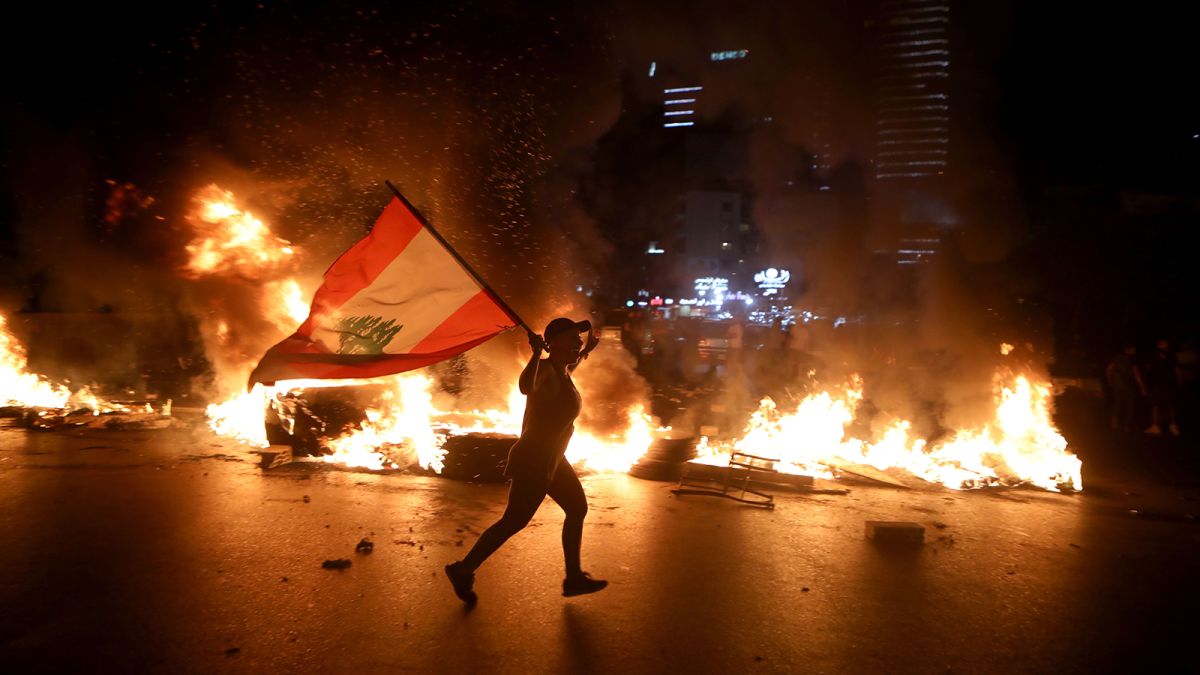Protests erupted across Lebanon on the evening of Thursday, June 11 as the local currency hit an unprecedented exchange rate of LL 5,500 for every one US dollar on the black market.
Demonstrators were initially drawn to the streets by a false report of the exchange rate reaching a whopping LL 7,000, but many remained gathered in local squares and highways until the early hours of Friday morning.
The local currency has devalued by 20 percent in the past two days, with more citizens sinking below the poverty line as the purchasing power of most further diminishes.
Essential gathering points of the October 17 revolution, such as the Ring intersection, Jal el Dib highway, Martyr’s Square, Al Noor square and others, witnessed a strong resurgence in demonstrations.
Towards 10 PM, protestors were joined by supporters of Hezbollah and Haraket Amal in Beirut’s main squares and suburbs. The political parties’ loyalists stated they were standing in solidarity with the protestors against the devaluation of the currency and the poor living conditions.
A protestor comforts a woman who sits on the ground next to burning tires in one of tonight’s protests.
She cries, he kisses her forehead and tries to calm her down. Feels like a mother and son scene.
This video reflects so much pain.#Lebanon #lebanonprotests pic.twitter.com/qraiJPBBpt
— Luna Safwan – لونا صفوان (@LunaSafwan) June 11, 2020
“I’m with the resistance but I’m protesting because I’m hungry,” one man told Al-Jadeed reporters.
The demands of the protestors were many, the most popular of which were the resignation of Riad Salameh, Lebanon’s central bank governor, and Prime Minister Hassan Diab. Demonstrators cursed Salameh heavily, citing him as the cause of the country’s suffering.
As central bank governor, Salameh is capable of setting a fixed exchange rate for the lira. In recent months, he had reassured citizens that the lira is “in peace” with the official rate pegged at LL 1,500 while the black market rate continued to fluctuate.
Protests began on a peaceful note at around 7 PM, having no violent confrontations with security forces. Towards midnight, reports of violence began to circulate. Protestors set banks on fire, blocked roads with burning tires and took to throwing rocks at security forces, who charged into the crowds by firing teargas.
Protesters now pushed back to the southern entrance of Beirut. #LebanonProtests #لبنان_ينتفض pic.twitter.com/gUA2JqjsLO
— Timour Azhari (@timourazhari) June 11, 2020
Images from protests in Tripoli’s Al Noor square also show security forces firing rubber bullets directly into the crowds.
In Jal el Dib, some protestors set up tents to continue road closures until the morning. Around 7 or 8 AM, the Jal el Dib main highway was closed by burning tires before the army intervened to allow movement of traffic.
Following an intense night of protests, Prime Minister Diab cancelled all appointments scheduled for Friday and called for an emergency cabinet meeting with governor Salameh in presence. The current session, which includes representatives from the Syndicate of Money Changers, the Association of Banks, and General Security, is set to resume in the afternoon at the Baabda Presidential Palace.
As the cabinet’s emergency meeting continues, the head of the Syndicate of Money Changers in Lebanon announced that Central Bank will be injecting dollars to meet market needs and help the currency stabilize. Currency will also be exchanged at a rate of LL 3,940 per USD.


